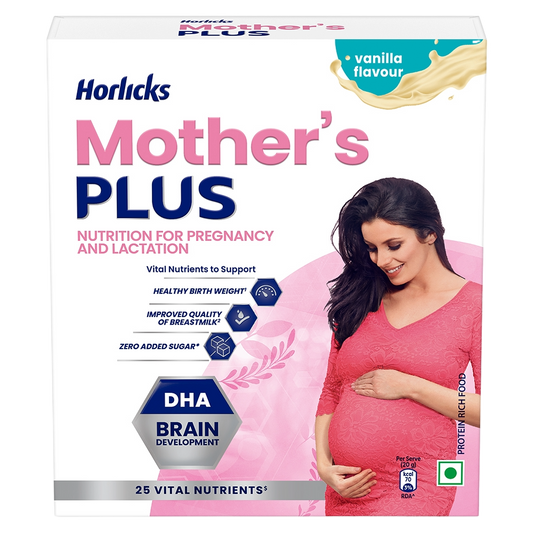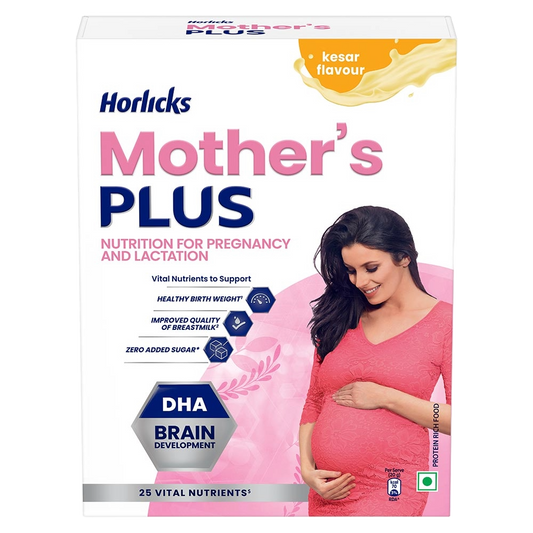Pregnancy hails as one of the most transformative phases in a woman's life, with each day bringing new physical and emotional experiences. Ensuring that both the mother and baby remain healthy during this phase is of utmost importance. The cornerstone of this healthiness lies in the adage, "You are what you eat." To simplify the process, a diet chart for pregnant women can serve as an excellent guide, paving a path towards conscientious and nutritious choices during pregnancy.
Pregnant Mother’s Diet Chart: Foods To Include

The journey to motherhood begins with a commitment towards a balanced diet, rich in essential nutrients and vitamins. The wholesome food not only nourishes the mother but also ensures the healthy development of the baby. Here are some essentials to include in a food chart for pregnant women:
1. Fruits And Vegetables
Rich in vitamins, minerals, and fibre, fruits and vegetables provide essential nutrients for you and your baby. Incorporate a variety of colourful options like spinach, oranges, carrots, and berries.
2. Raw Or Undercooked Seafood
Raw or undercooked seafood may contain parasites or bacteria. It is best to avoid sushi, oysters, clams, and other raw seafood options during pregnancy.
3. Unpasteurized Food
Unpasteurized foods can contain bacteria, viruses, or parasites, which may harm the baby. It’s best to avoid raw milk, cheese, and juices. Stick to pasteurized options to reduce the risk of foodborne illnesses.
4. High Mercury Fish
Fish such as sharks, swordfish, king mackerel, and tilefish contain high levels of mercury and should be avoided. While eating certain fish benefits babies' brain development, these specific types can lead to brain damage or developmental delays.
5. Excess Caffeine
High caffeine intake may restrict fetal growth and increase the risk of low birth weight at delivery.
Indian Diet Chart For Pregnant Women
The Indian diet blends taste and health beautifully, making it a fantastic guide for expecting mothers to meet their nutritional needs. Here is a sample diet chart for pregnant women showcasing the myriad possibilities within Indian cuisine:

Early Morning
An excellent way to start your day would be with 5-6 soaked almonds and a glass of milk. Almonds are rich in protein and fibre, providing necessary energy for the day.
You may want to consider incorporating Horlicks Mother's Plus into your milk, as it provides a nourishing mix of nutrients. This specially designed beverage includes vital elements such as Choline and DHA, which are recognized for their role in promoting the growth and optimal functioning of the infant's brain.
While it is important for newborns to primarily depend on their mother's milk for nourishment in the initial six months*, Horlicks Mother's Plus can complement breastfeeding by enriching breast milk quality with its nourishing constituents.
Breakfast
For breakfast, opt for a bowl of mixed vegetable poha, sevai or upma. This dish is not just rich in carbohydrates but also loaded with vegetables that add to your daily nutrient intake. You can also have one cup of oatmeal with a boiled egg.
Mid-Morning Snack
A glass of fruit milkshake (banana, berries or any seasonal fruit). Or a bowl of vegetable soup. These are high in protein and fibre, helping you feel full and providing essential nutrients for foetal development.
Lunch
Lunch should be a full plate comprising whole wheat rotis, a cup of lentils (dal), a vegetable curry (sabzi), and curd rice. The lentils provide necessary protein, while the vegetable curry adds those essential vitamins and minerals. Roti is a great source of energy, and curd rice aids in digestion and provides calcium. For non-vegetarians, adding half a cup of fish or meat can be a good option.
Evening Snack
An evening snack could be a bowl of mixed fruit salad or sweet potato salad. Add a side of 10-14 dry fruits and nuts, including almonds, cashew nuts and raisins along with peanuts and sesame seeds (til).
Dinner
Begin your dinner with a light soup, either vegetables or chicken. Following this, a meal of whole wheat or bajra rotis, vegetable curry, half a cup of lentils and green leafy vegetables.
Before Bed
Finish your day with a glass of warm turmeric milk. Turmeric has anti-inflammatory properties and helps boost immunity, while milk provides the necessary calcium.
While this diet chart provides holistic nutrition, remember that every individual's dietary needs during pregnancy vary. Always consult your dietitian or healthcare provider to tailor a diet chart that suits your body's specific needs and taste preferences.
The Takeaway
The road to birthing life should be paved with love, care, and nutrition. With a comprehensive diet chart for pregnant women, it becomes feasible to track one's intake, ensuring both the mother's and baby's health. It focuses on the importance of balanced meals, vivid in flavour and packed with the necessary nutrients, with control over the foods that require avoidance for a safer pregnancy. As mothers-nurture-to-be, every morsel you consume plays a role in nurturing the new life within you.
Remember that every pregnancy is unique, and so is every diet chart. Consulting with a dietitian or healthcare provider will help tailor a diet plan best suited to your tastes and requirements.
FAQs
1. What Are The Benefits Of A Pregnancy Diet?
A pregnancy diet provides numerous benefits, such as supporting the healthy development of the baby, preventing nutritional deficiencies, reducing the risk of birth complications, maintaining the mother's energy levels, promoting healthy weight gain, and improving overall maternal well-being.
2. Can A Pregnant Woman Be On A Vegetarian Diet?
Absolutely, pregnant women can certainly follow a vegetarian diet. By incorporating a diverse range of plant-based protein sources like legumes, tofu, tempeh, quinoa, and nuts, they can easily meet their protein requirements. It's important to note that pregnant women should ensure they consume sufficient amounts of essential nutrients such as iron, vitamin B12, calcium, and omega-3 fatty acids. These can be obtained from appropriate vegetarian sources or through the use of supplements.
3. What Trimester Is Most Important For Diet?
The second and third trimester is crucial for both the baby's development and the mother's increased energy and nutritional needs. A well-balanced diet is important throughout pregnancy, but it holds particular significance during these periods due to the rapid growth and development of the baby.









